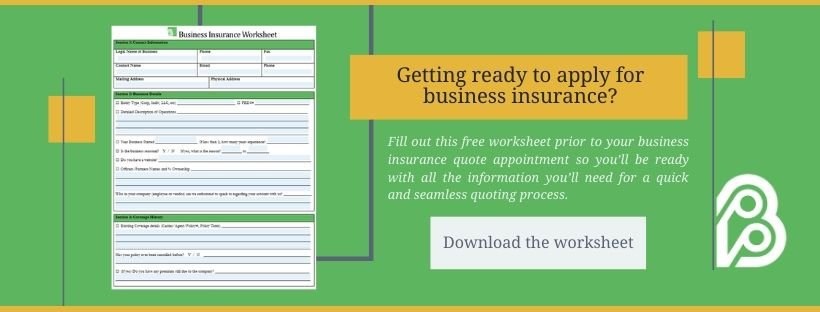Do I Need Builders Risk Coverage?
Individuals & Families | Learning Center | Uncategorized | individuals and families | Life Insurance
So you’re managing a commercial construction, renovation, or installation project -- we know you have a lot on your mind.
You have deadlines to adhere to, materials to coordinate, and schedules to manage. The last thing you want is for a fire, natural disaster, theft or other incident that derails all the hard work and progress you’ve put into the project -- that’s why builder’s risk insurance is essential.
Builder’s risk insurance is a pivotal part of your construction, renovation, or installation project because it provides individualized protection for the structure and related materials leading up to project completion.
In nearly 100 years of business, Berry Insurance has helped many business owners, property and homeowners, and contractors navigate the insurance process for their homes, jobs, and passion projects.
We know we can also help you navigate the construction of your builder's risk policy by explaining the coverages, exclusions, process and cost.
What is builder's risk insurance?
Builder's risk insurance is an individualized type of property insurance, formulated specially for buildings under construction or major renovation.
Also known as “course of construction" insurance, builder's risk insurance protects the contractor or property owner from financial loss resulting from damage or loss of the project’s structure and materials during the course of construction.
Because each policy is so specialized, understanding what you can expect from your builder's risk insurance can be confusing.
Builder's risk policies are available in a few different options, for residential and commercial projects. In this article, we will specifically be talking about commercial builder’s risk policies.
If you’re interested in learning about read our related article about builder’s risk insurance for home projects.
What does a builder’s risk policy cover (and not cover)?
Generally, a builder's risk policy covers a structure under construction and the materials being used to build it (anything that will become a permanent part of the structure), either on site or in transit.
Because builder's risk insurance policies are specifically curated for each individual construction project, their terms can vary greatly.
However, most policies cover damages or losses of property from theft, vandalism, fire, lightning, hail, hurricanes, wind, explosions, and vehicles.
Exclusions and extensions:
Most policies carry standard exclusions. Damages or losses resulting from ordinary wear and tear, mechanical breakdown, faulty design, employee theft, earthquakes, water damage, weather damage of property left in the open, acts of terrorism and war, government action, contract penalty, and voluntary parting are all not typically covered.
Depending on location and other project variables, other exclusions may apply. For example, if the project is in a beach zone, damages or losses from earthquakes, floods, and wind may not be covered, but extensions can typically be purchased to cover these situations.
In addition to the structure and its materials, policyholders can purchase extensions to cover temporary structures, construction forms, and scaffolding used in the construction process, as well as debris removal in the event of a loss.
Builder's risk insurance also offers other optional extensions which would reduce the financial impact of damage or loss. For example, you could purchase an extension to cover costs due to a delay in project construction resulting from a loss, such as lost sales or rental income, loan interest, and real estate taxes.
Some of these exclusions are sometimes included within a standard policy, without the extra cost.
Builder's risk insurance does not cover accident and injury liability during construction -- liability insurance will be needed in addition to builder's risk.
Builder's risk also does not cover subcontractors (they are required to have their own insurance) or the property of others.
How filing a builder’s risk claim works:
After damage or a loss, builder's risk insurance covers up to the coverage limit. The coverage limit, which is established when you purchase the policy, typically aligns with the estimated completed value of the project (the construction budget including all materials and labor, but not including land value).
Policy terms generally run three, six, or 12 months depending on the length of construction. If the construction exceeds the policy term, it can be extended (usually only once).
What types of policies are available?
Builder's risk policies are available for residential and commercial new construction, remodeling, and installation projects.
Though policy names may vary from one provider to another, builder's risk policies come in two variations:
- Location-specific policy: straightforward policy covering a single residential or commercial new construction, remodel or installation project
- Blanket policy: policy covering multiple construction projects per year, valued at up to a figure determined by the insurance company
Do I need builder's risk coverage?
Contractors or property owners should always have builder's risk insurance for any construction or major renovation.
If the project is being financed, the lender will typically require proof of a builder's risk policy.
In some cases, builder’s risk insurance is not necessary for renovation projects because they may be covered under property insurance. Property insurance typically has a course of construction endorsement, which covers construction projects, subject to a deductible.
If a project does not change the original structure of the building and/or is a small cost compared to the building value, it may be covered under your property insurance, but there is no standard “rule of thumb” for all projects and insurance companies, so reach out to your carrier to see if your project will be covered before seeking out a builder’s risk policy.
How much does builder’s risk insurance cost?
A location-specific commercial builder’s risk insurance policy typically costs 1-4% of the total construction cost. For example, coverage for a $1,000,000 dollar project could cost around $10,000 to $40,000.
Generally, a ground up construction is two to three times cheaper than a renovation, because in the first few months of construction, there is only a portion of the structure, so if something happened to it, it would not be a significant loss.
A blanket commercial builder’s risk policy cost will vary, depending upon the scope and values of the total projects open at any one time. The insurance company will require a monthly audit, also known as a reporting form, where the contractor will update project values, and any additional premium will be calculated.
Of course, the cost for either type of policy will vary depending on any extensions included.
When obtaining a quote, your insurance agent will ask you for various details such as:
- Site address
- Type of project
- Project budget
- Length of project
- Number of stories
- Square footage
- Public protection class
- Construction type, and if constructed onsite or modular/prefab
- Site security details
- Name of General Contractor (if policy purchased by project owner)
- Actual cash value of existing structure (if renovation)
- Year built (if renovation)
- Projected structural alterations (if renovation)
Need a builder’s risk policy?
Whether you need protection for one commercial project, or more general coverage for the various projects you’re coordinating, you’ll want to work closely with your agent to make sure your coverage is adequately protecting your building.
At Berry Insurance, we’ve worked with several contractors and property owners, ensuring each acquired a policy tailored to the need of their specific projects.
Once your project is completed and the builder’s risk policy expires, we can also help you obtain other business insurance you may need for the new venture.
Before committing to a policy, here are some other things to consider about builder’s risk insurance.



.jpg)
